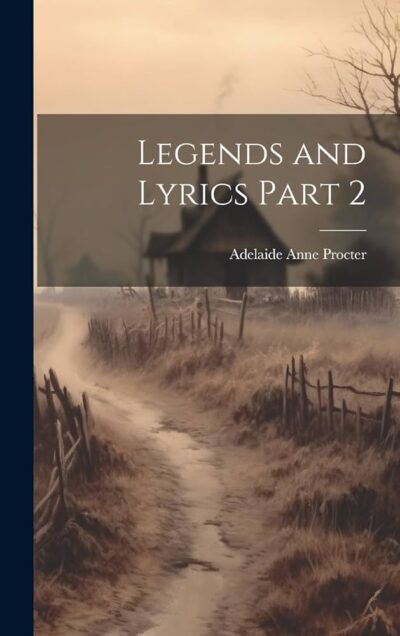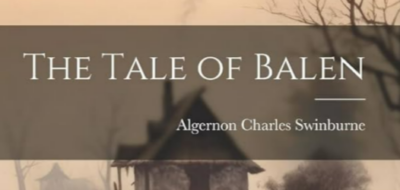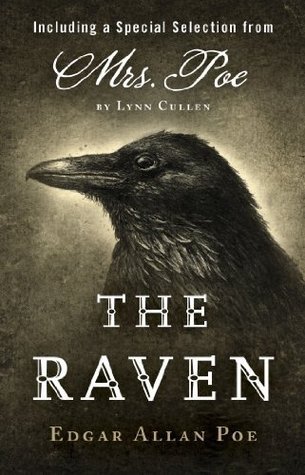208 Results in the "Poetry" category
Biography & Memoir (513)
Books Like (9)
Business & Finance (3)
Children’s Fiction (235)
Dystopian (30)
Education & Learning (26)
Fantasy (1832)
fashion (1)
Fiction (5781)
Health & Wellness (21)
Historical Fiction (662)
Horror (162)
Literary Fiction (1011)
Non-Fiction (1213)
Novel (240)
Others (106)
Philosophy (147)
Politics & History (126)
Posts (121)
Psychology (50)
Religion & Spirituality (1)
Romance Novel (771)
Science & Technology (65)
Science Fiction (409)
Self-Help & Personal Development (112)
The Ultimate Book Lists (1)
Thriller / Mystery (912)
Travel & Adventure (2)
True Crime (57)
view (96)
Young Adult (751)
-
 Legends and Lyrics: Second Series is a collection of poems by Adelaide Anne Procter, published in 1861. It features reflective and lyrical works exploring themes of faith, love, compassion, and social justice, showcasing Procter's delicate and heartfelt poetic style.
Legends and Lyrics: Second Series is a collection of poems by Adelaide Anne Procter, published in 1861. It features reflective and lyrical works exploring themes of faith, love, compassion, and social justice, showcasing Procter's delicate and heartfelt poetic style.-
4.0 K • Nov 8, '24
-
4.1 K • Nov 8, '24
-
4.4 K • Nov 8, '24
-
-
Story
Grass of Parnassus
 Grass of Parnassus by Andrew Lang is a lyrical collection of poetry that captures the beauty of nature, the charm of mythology, and the poignancy of human emotion. Through elegant verse, Lang weaves themes of love, longing, and the fleeting nature of life into a timeless celebration of art and imagination.
Grass of Parnassus by Andrew Lang is a lyrical collection of poetry that captures the beauty of nature, the charm of mythology, and the poignancy of human emotion. Through elegant verse, Lang weaves themes of love, longing, and the fleeting nature of life into a timeless celebration of art and imagination.-
3.6 K • Nov 8, '24
-
3.5 K • Nov 8, '24
-
3.8 K • Nov 8, '24
-
-
Story
The Tale of Balen
 The Tale of Balen by Algernon Charles Swinburne is a poetic retelling of the tragic Arthurian legend of Sir Balin, a knight whose life is marked by loyalty, courage, and a fateful destiny. First published in 1896, the poem follows Sir Balin’s quest for honor and his encounters with themes of fate, vengeance, and the consequences of his actions. Swinburne's vivid, lyrical verse captures the medieval atmosphere of King Arthur's court while delving into the hero’s inner conflict and moral struggles. This work highlights Swinburne’s fascination with chivalric ideals and the tragic beauty of knightly legends, bringing to life one of the darker tales from Arthurian mythology.
The Tale of Balen by Algernon Charles Swinburne is a poetic retelling of the tragic Arthurian legend of Sir Balin, a knight whose life is marked by loyalty, courage, and a fateful destiny. First published in 1896, the poem follows Sir Balin’s quest for honor and his encounters with themes of fate, vengeance, and the consequences of his actions. Swinburne's vivid, lyrical verse captures the medieval atmosphere of King Arthur's court while delving into the hero’s inner conflict and moral struggles. This work highlights Swinburne’s fascination with chivalric ideals and the tragic beauty of knightly legends, bringing to life one of the darker tales from Arthurian mythology.-
4.5 K • Nov 8, '24
-
4.6 K • Nov 8, '24
-
4.5 K • Nov 8, '24
-
-
Story
The Raven
 The Raven by Edgar Allan Poe is a haunting narrative poem that tells the story of a grieving man visited by a mysterious raven. As the bird perches in his chamber, it speaks a single word, "Nevermore," driving the man into a spiral of despair and madness as he reflects on loss, longing, and the nature of mortality. Renowned for its melancholic tone, vivid imagery, and rhythmic language, the poem is a masterpiece of Gothic literature.
The Raven by Edgar Allan Poe is a haunting narrative poem that tells the story of a grieving man visited by a mysterious raven. As the bird perches in his chamber, it speaks a single word, "Nevermore," driving the man into a spiral of despair and madness as he reflects on loss, longing, and the nature of mortality. Renowned for its melancholic tone, vivid imagery, and rhythmic language, the poem is a masterpiece of Gothic literature.-
4.6 K • Nov 8, '24
-
4.2 K • Nov 8, '24
-
4.5 K • Nov 8, '24
-
- Previous 1 2
